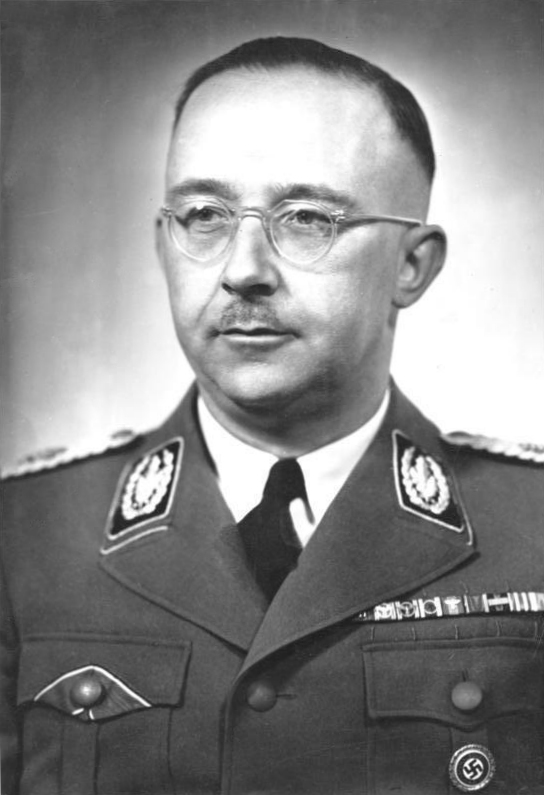Your search - Heinrich Himmler, 1900-1945 - did not match any resources.
Heinrich Himmler
 Heinrich Luitpold Himmler (; 7 October 1900 – 23 May 1945) was a German politician who was the 4th of the (Protection Squadron; SS), a leading member of the Nazi Party of Germany, and one of the most powerful men in Nazi Germany, primarily known for being a main architect of the Holocaust.
Heinrich Luitpold Himmler (; 7 October 1900 – 23 May 1945) was a German politician who was the 4th of the (Protection Squadron; SS), a leading member of the Nazi Party of Germany, and one of the most powerful men in Nazi Germany, primarily known for being a main architect of the Holocaust.As a member of a reserve battalion during the First World War, Himmler did not see active service or combat. He joined the Nazi Party in 1923 and the SS in 1925, and in 1929 Adolf Hitler appointed him . Over the next sixteen years, Himmler developed the SS from a 290-man battalion into a million-strong paramilitary group. He was known for good organisational skills and for selecting highly competent subordinates, such as Reinhard Heydrich in 1931. From 1943 onwards, he was both Chief of the ''Kriminalpolizei'' (Criminal Police) and Minister of the Interior, overseeing all internal and external police and security forces, including the Gestapo (Secret State Police). He also controlled the ''Waffen-SS'', the military branch of the SS.
Himmler's interest in occultism and ''Völkisch'' topics influenced the development of the racial policy of Nazi Germany, and he also incorporated esoteric symbolism and rituals into the SS. He was the principal overseer of Nazi Germany's genocidal programs, forming the ''Einsatzgruppen'' and administering extermination camps. In this capacity, Himmler directed the killing of some six million Jews, between 200,000 and 500,000 Romani people, and other victims. A day before the launch of Operation Barbarossa, Himmler commissioned the drafting of ''Generalplan Ost'', which was approved by Hitler in May 1942 and implemented by the Nazi regime, killing approximately 14 million people, mostly Polish and Soviet citizens.
Late in the Second World War, Hitler briefly appointed Himmler as military commander and later Commander of the Replacement (Home) Army and General Plenipotentiary for the administration of the entire Third Reich (''Generalbevollmächtigter für die Verwaltung''). Specifically, he was given command of the Army Group Upper Rhine and the Army Group Vistula. After Himmler failed to achieve his assigned objectives, Hitler replaced him in these posts. Realising the war was lost, Himmler attempted to open peace talks with the western Allies without Hitler's knowledge, shortly before the end of the war. Hitler learned of this, dismissed him from all his posts in April 1945, and ordered his arrest. Himmler attempted to go into hiding but was detained and arrested by British forces and died by suicide in British custody on 23 May 1945. Provided by Wikipedia
